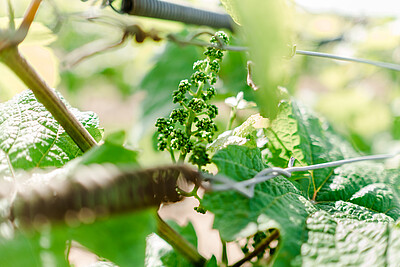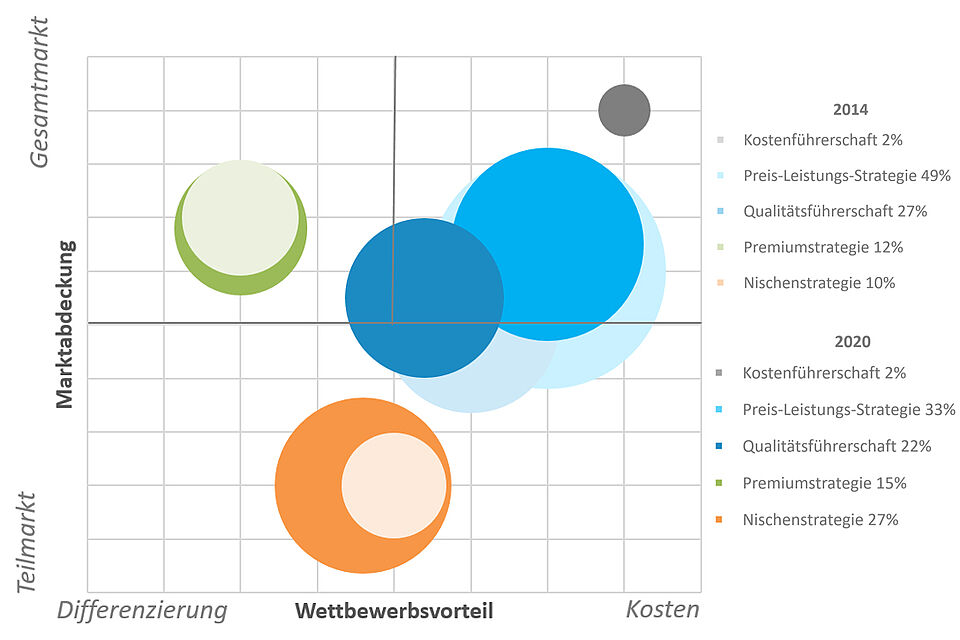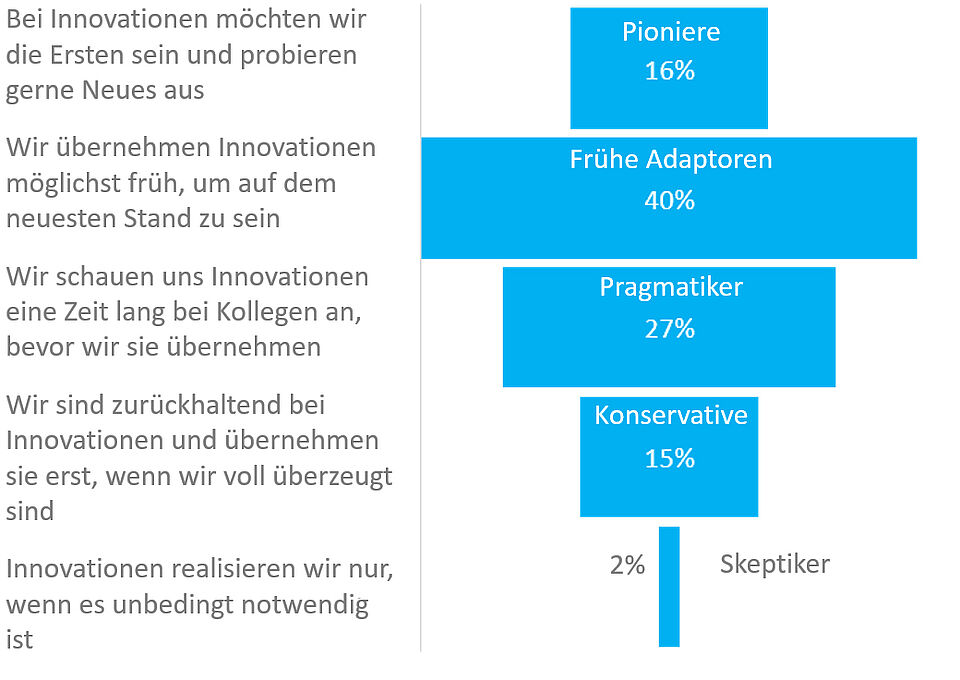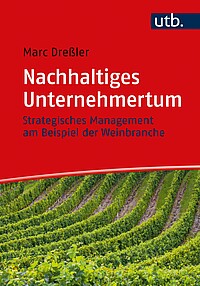Strategy - Innovation - Sustainability
Since 2012, Prof. Dr. Marc Dreßler and his team have been conducting online surveys every two years on strategy, sustainability and innovation in connection with current topics in the German wine industry. They form the basis of the research in order to develop practical recommendations for companies in the wine industry. The focus of the last survey was the effectiveness of innovation decisions. The latest results are current and relevant, as they also take into account the effects of the coronavirus pandemic and give an impression of how the wine industry has reacted in these challenging times. Divided into the main topics of strategy, innovation, sustainability, new grape varieties (Piwis) and the corona pandemic, we give you a brief insight into our research work. You can download the most important findings below.
Thank you for your interest in our research. If you have any questions or suggestions about the strategy panel, or if you would like to take part in the next survey, please do not hesitate to contact us.

Strategic entrepreneurship is the basis for long-term economic success
There are different approaches and preferences when it comes to choosing a corporate strategy. We distinguish between cost leadership, price-performance strategy, quality leadership, premium strategy and niche strategy. By and large, the strategic landscape in the wine industry is confirmed. However, there is a discernible trend away from the less differentiated "middle" towards niches: while in 2014 49% still followed the price-performance strategy and 10% the niche strategy, in 2020 only 33% followed the price-performance strategy (-16%) and 27% the niche strategy (+17%). Companies are therefore looking for ways to differentiate themselves and for unique selling points that give them a competitive advantage.
Ultimately, it is not the choice of strategy but the long-term alignment of activities with strategic and corporate goals that is essential for success. Companies are therefore advised to remain true to their choice of strategy and to consistently align their measures with it.
When asked about the assessment of success in the various areas of the company, such as turnover/profit, costs, market share, quality, customer strategy and personal satisfaction, it is noticeable that the acquisition of new markets was rated as poor or very poor by a good half of the companies (51%) or played no role at all. Cost management is also a major challenge for economic success: only a third of the companies rated their success as good or very good. The optimization of cost management will continue to be an important task for the long-term economic success of a company in the coming years.
Relevance of sustainability quintupled
Sustainability has become established in the wine industry and is almost taken for granted. However, this has been a process over the last few years, which has certainly also been fueled by the broad social debate and ongoing climate activism. The proportion of innovative sustainability measures implemented has more than quintupled (60%) since 2012 (11%). All three pillars of sustainability - ecological, economic and social - are extremely relevant and are of high or very high importance for more than three quarters of all companies. The following trends can be observed:
- The more pronounced the economic sustainability, the greater the operational success.
- The more successful the business, the greater its social commitment, which in turn has a positive impact on its reputation.
- The more ecological the business practices, the more pronounced the ecological sustainability.
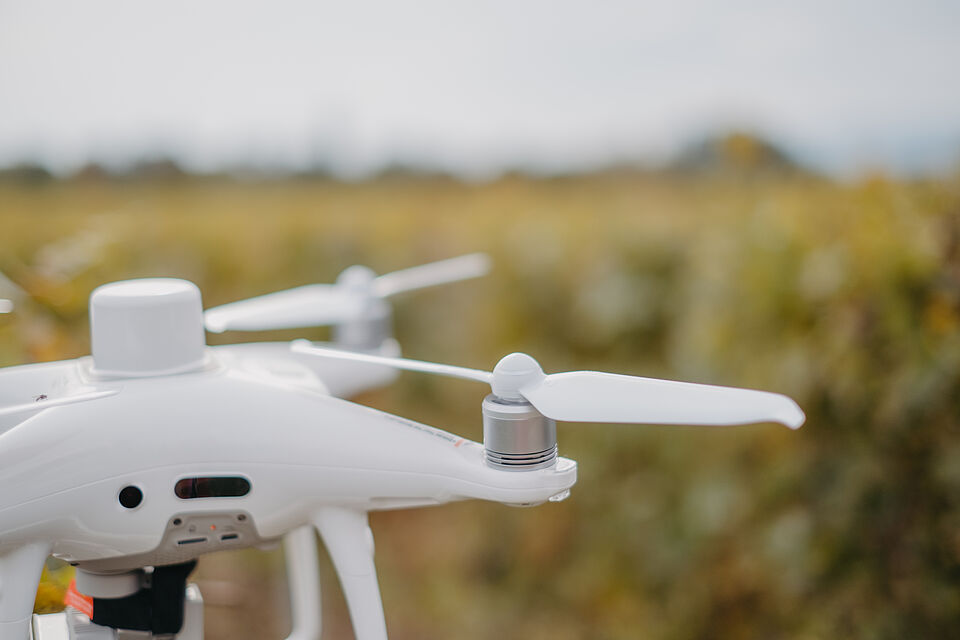
Complex innovative strength in the wine industry
The wine industry is generally very open to innovation and it is confirmed that innovations are conducive to success. More than half of all companies actively approach innovations as early as possible (16% pioneers, 40% early adopters). This fact provides a boost for the challenges of the coming years. As part of the survey, the companies also stated their plans with regard to innovation measures. This included process and operational innovations as well as product and market-related innovations. The measures already planned and implemented focus on marketing innovations (58%), product innovations (64%) and sustainability measures (60%).
Innovation decisions are primarily target-driven and strategically approached, but intuitive behavior is also expedient, especially in decision-making situations that are difficult to predict. Both types of behavior are justified in the market and are also approached alternately.
New grape varieties (Piwis) offer possibilities and opportunities
Piwis are wines made from fungus-resistant grape varieties. Today, the term "new grape varieties" is increasingly used in this context. Due to their high resistance to fungal diseases, they enable a significant reduction in the use of pesticides and are therefore often referred to in terms of sustainable and environmentally conscious farm management. Although new grape varieties do not yet account for a large proportion of the total area in Germany, they are relevant for 60% of all farms, i.e. these farms have already planted new grape varieties or plan to do so in the next few years.
The advantages of new grape varieties are primarily seen in the relief of the environment or as the right response to climate change, but operational aspects such as process and cost optimization as well as risk minimization in foreign trade also play a role. Only 13% of the companies surveyed believe that new grape varieties offer advantages in terms of customer acquisition and retention. Against the backdrop of an increasingly "green-minded society", it is foreseeable that this proportion will increase in the coming years due to increased consumer demand and determine competitive advantages.
New grape varieties help to counter the changes caused by climate change - 68% fully or partially agree with this - but the decision depends on the overall strategy. The risk of the innovation decision is of greater relevance. More than half of the companies are therefore still waiting to see how things develop.
For strategies outside the premium segment, new grape varieties offer an opportunity to differentiate themselves in the market. Price-performance providers in particular are hoping for support from multipliers. For non-organic wineries in particular, new grape varieties offer the opportunity to position themselves sustainably.
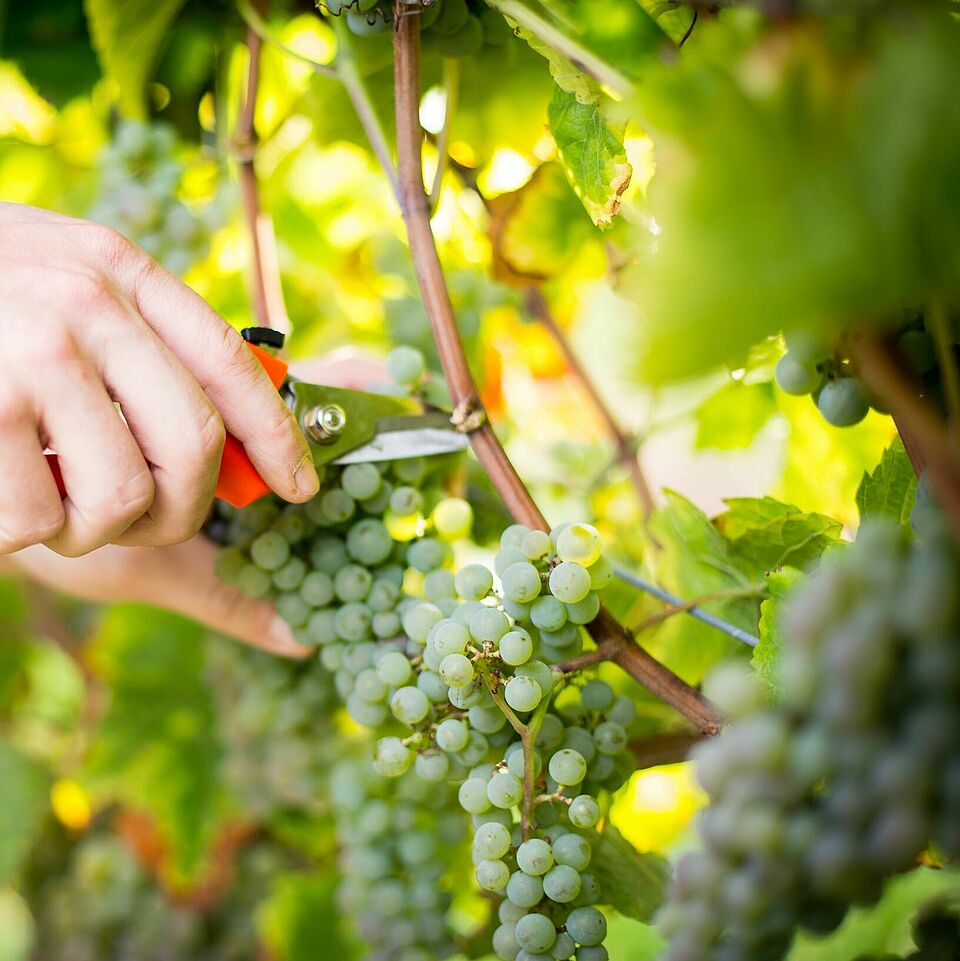

Corona acts as an accelerator for change
The coronavirus pandemic has of course also had a significant impact on the wine industry. In terms of innovation behavior, it can be observed that the crisis has given a positive boost. Especially in crises, intuitive behavior makes it possible to react quickly to unforeseeable changes or seize opportunities. This is confirmed by our survey: The corona pandemic has prompted the majority of the companies surveyed to seek and initiate innovative solutions. Start-ups are also often characterized by this intuitive decision-making principle and it is a key factor in their success.
About the panel:
Around 300 companies took part in the representative survey. All participating companies were provided with a detailed analysis of the results. Would you also like to be part of our research and give us your assessment in the next survey? Then we look forward to hearing from you.
The panel since 2012
An overview of the results of the last few years summarized
A panel refers to a repeated survey. Surveys conducted over several years make it possible to identify developments over time and set current survey priorities. The "Strategy and innovation in the wine industry" panel, which is conducted every two years, was launched in 2012.
- The first survey provided an inventory of strategic challenges, corresponding answers, insights into strategic positioning and background information on innovation management.
- The second panel confirmed the previously identified strategic map and generated insights into the effectiveness of strategic groups. The multi-channel behavior identified is of the utmost importance for practitioners.
- The third panel focused on sustainability. The increasing strategic importance and strategic implications are impressive.
- The fourth panel reveals growth ambitions and the associated influences on results: Ambition is a basic prerequisite for surviving in a highly competitive market.
Book tip
Are you looking for even more insider knowledge on sustainable entrepreneurship and strategic management using the wine industry as an example? Marc Dreßler provides valuable insights and practical recommendations for action in his forthcoming book :
This book provides entrepreneurs from small and medium-sized enterprises and start-ups as well as students with a future role in such companies with management skills for goal-oriented, strategic sustainability management. The focus here is on concrete strategic action and the pursuit of sustainability goals. Take a look at the book here or order a copy directly.
ISBN 978-3-8252-5697-5
Publication date: December 2021

